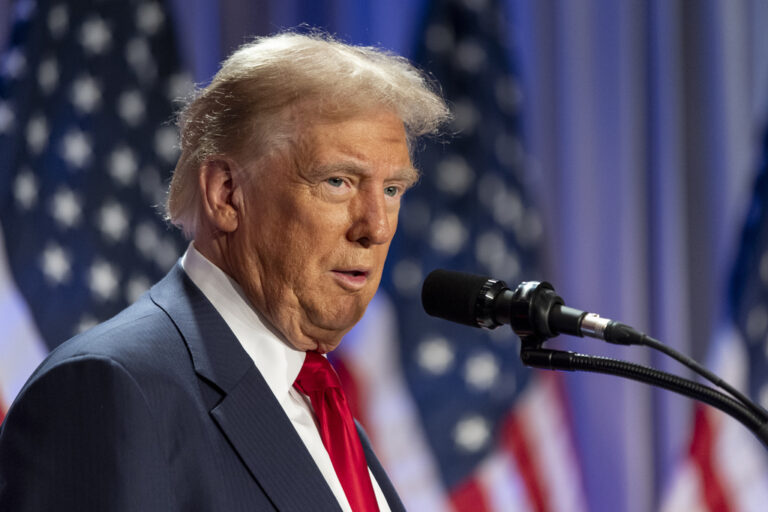The good news is that it doesn’t look like a bitterly polarized Washington will stumble into another government shutdown.
But as Democrats controlling the House unveil a stopgap, government-wide spending bill to keep the lights on and pay the troops, there’s scant evidence that power sharing in the Capitol will produce further legislative accomplishments anytime soon.
The measure, likely to be released on Tuesday, is set for a vote this week and would keep the government running through Nov. 21 and buy time for action and negotiations on $1.4 trillion in annual appropriations bills. Some items can’t wait and will be included, like accelerated funding for the 2020 census and $20 million to combat Ebola in Africa. President Donald Trump also appears likely to win authority to continue bailout payments to farmers harmed in the crossfire caused by his aggressive trade policies against China.
Since the temporary spending bill is the only must-do legislation on the immediate horizon, lawmakers are using it as a locomotive to haul other priorities into law. That bundle of provisions, negotiated behind closed doors, offers plenty of evidence of Capitol Hill’s chronic dysfunction.
It’s not just that the Democratic-controlled House and GOP-held Senate can’t agree on big issues like infrastructure, guns and health care. They also can’t agree on lower-tier items that typically pass by wide margins, such as short-term extensions of the federal flood insurance program and the Export-Import Bank, which helps finance export deals important to large manufacturers such as The Boeing Co.
The House and Senate banking committees are responsible for legislation to reauthorize both the Export-Import Bank and the flood insurance program, which is particularly important to the real estate sector in coastal areas, but there’s been no progress, so temporary extensions of the two programs have been attached to the interim spending bill.
Meanwhile, a bundle of health care-related provisions, such as Medicaid payment rates for hospitals that serve mainly lower-income communities, is catching a ride on the temporary spending bill, according to a spokesman for House Appropriations Committee Chairwoman Nita Lowey, D-N.Y.
Democrats are deferring a showdown over Trump’s border wall, which sparked a 35-day partial government shutdown at the turn of the year. Democratic leaders opted against trying to use the bill as a way to take on Trump controversies like cutting military base projects to pay for his U.S.-Mexico border wall. But they’re not granting Trump any favors, either, denying provisions such as the flexibility to build new border wall segments.
A new bipartisan report by the Senate’s Permanent Subcommittee on Investigations released Tuesday found that this year’s shutdown and a more widespread 2013 shuttering of federal agencies cost taxpayers about $4 billion, mostly for back pay for workers who did not work during the shutdowns. Almost 57,000 years of worker productivity were lost, according to the report by Sens. Rob Portman, R-Ohio, and Chris Coons, D-Del., contributing to piled-high trash at national parks, a suspension of consumer product safety inspections at U.S. ports, and delayed certifications for new aircraft.
An early draft of the stopgap measure, circulated by Lowey, did not include Trump’s request for maintaining funding for the farm bailout, but talks Monday appeared headed toward a bipartisan compromise that would allow the Agriculture Department to keep issuing checks to farmers.
The bailout started last year after China retaliated against Trump’s tariffs on Chinese exports by reducing purchases of U.S. crops. The developments have caused widespread discontent in farm country that’s already beset by lower crop prices and vanishing profits.
The House is slated to pass the stopgap spending measure this week and the Senate is expected to follow in time to meet the Sept. 30 deadline to avert a government shutdown.
The $1.4 trillion in annual appropriations bills are off to a late and not particularly promising start despite a bipartisan budget and debt deal passed in July. The House has passed 10 of the 12 annual bills, but at spending levels higher than permitted under the budget deal.
The Senate is roiled by battles over Trump’s $5 billion border wall request and his moves to tap military base construction projects to pay for it. Democrats complained that Senate Republicans are giving too much funding to Trump’s cherished wall project at the expense of health and education projects.
The fight has Senate Democrats threatening to filibuster an upcoming vote on a huge, almost $700 billion defense funding bill to protest preliminary funding decisions of Trump’s GOP allies in the Senate.
“Our Democratic colleagues would rather provoke a partisan feud with the president,” said Senate Majority Leader Mitch McConnell, R-Ky. “They’d rather have a fight with the president than stick to the agreement that we all made.”
Senate Democratic leader Chuck Schumer responded that Trump’s wall funding plan “is what Democrats oppose. That’s what Leader McConnell calls staging a political fight.”
(AP)











